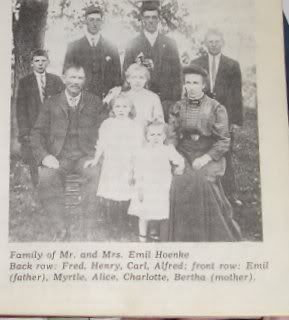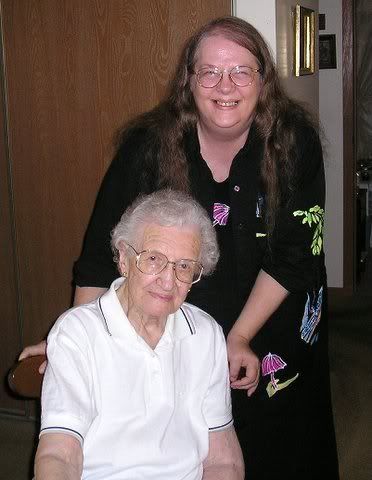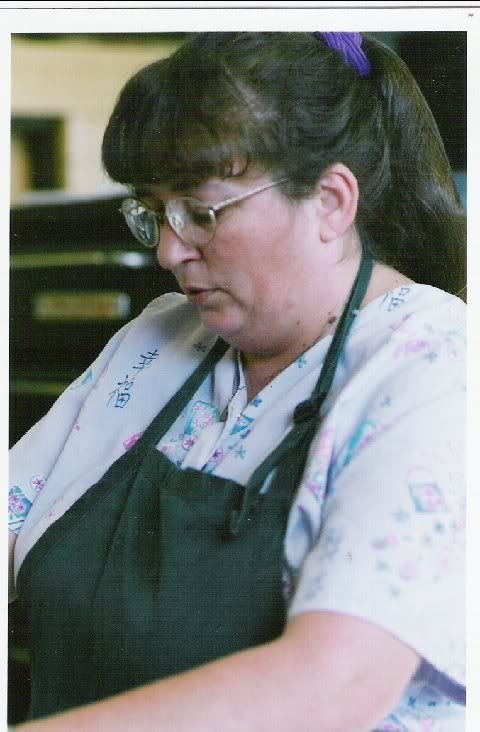Topic: u02d1 Process
Pretty good days work ... I think this one finishes up the paper we were working on. :)Date: July 30, 2006 6:22 PM
Subject: In response to assignment from Ann Author: Garvey, Ann
Last edited on: July 30, 2006 6:29 PM
In summary, the process of perceiving persons considers observation, attribution, integration, and confirmation (Brehm, Kassin, & Fein, 2005). In observation, we utilize the elements of internal scripts and first impressions of others gained through behavioral evidence collected (2005). In Attribution, we assign the others to certain dispositions according to whether or not they match up to our expectations with consistency (2005). Does the other do as he says? We use this to predict if the other is going to be safe (2005). It is our mental understanding of the other in relationship to us. Integration is the impression the other makes on us (2005). We tend to be more impressed if the other weighs in according to the traits we value. Confirmation is us making up our minds as to personal investment in others and the internal verification of our beliefs (2005).
Attribution is in general how we handle being in the social world. We look to other people for stability through their characteristics, personality, attitudes, and abilities (Brehm, Kassin, & Fein, 2005). When we met our ex-husband we thought he was stable and from a stable family, showed intellectual characteristics, appeared to have an open lively personality, carried a healthy attitude toward life, and ranked well in the abilities that were of interest to us. We attributed him as being all-pervasive. Placed next to him, we felt more steady, confident, alive, and curious about life. However, we did not attribute these qualities as coming from inside of us, we attributed them to him and was grateful he was making us important because we had been important to him.
An attribution bias that we had, though not fully conscious of it, was that we saw life through the eyes of someone who had been abused and that would have a decisive impact on how we perceived our ex, our world, and ourselves and that perception changed as time, circumstances, and the principles involved changed. When we were introduced to our ex, the person doing the introductions told him, “You are going to love Ann, she asks so many questions.” Then she turned to us and said, “You are going to love him, he has all the answers.” That was our first impression of him. He was going to be someone who would take care of us. From the first take, we were feeding into a common script of being helpless in the caretakers presence. We did as he wanted, because we had attributed his mind to be better than our own and we didn’t want to make him angry.
Gradually truths straighten themselves out, but sometimes only through years and years of hard lessons. The turning point for us was when he became so angry with us for standing up to him, he told the doctors and hospital staff about his strong wishes to have us dead. They did not wear the same blinders and acted in such a way that we would not be released from the hospital until safer independent housing was prepared. The more we took over our own thinking processes, the angrier he became. Not only had he wanted us dead, but he had strongly impressed we should take our own life, because the insurance policy would be of higher value to him and the boys. Even, at that, we did not lose overnight our bias that he was a superior person with superior thoughts. Therapy and a hard three year process of separation and divorce would assist in altering some of our impressions. From the perspective of an abuse survivor his anger was confirming our impression of us being at fault rather than him. Over and over again, he would state that I would be without home and children. The result of our self-diminished thinking acted as a self-fulfilling prophecy. We had left our family of origin terrified of our abuser’s anger and negativity, we were also afraid of our husband, in-laws and children having angry negative thoughts toward us, and we responded in turn by eventually and fearfully leaving. We found ourselves alone at a homeless shelter as a better and safer alternative.
One study that supports perception and harsh parenting of children states that children raised this way often repeat the parents’ perceptions of themselves so that the children learn to hold the same negative angry attitudes about their life, unrealistic developmental expectations, and sometimes negative attitudes about their own children (Daggett, O’Brien, Zanolli, & Peyton, 2000). In another study Leahy, Pretty & Tenenbaum (2003), found that adults traumatized by childhood sexual abuse attributed the abuse differently according to whether or not they had resolved the traumatic attachment to their perpetrator. I know that my life now 16 years later is much, much better and safer than it ever was in our past. But, it’s been 20 years of therapy and I still cringe when the boss gets cranky. I have never stopped, nor will I ever stop working on issues having been abused so early in life.
We are still battling ghosts as to attributing success to ourselves, or others. As toward our future and how these concepts might affect us professionally, we have chosen to work in the field of psychology, but not toward clinical. We know that we have a certain amount of instability. It would be irresponsible for us to be in a therapeutic relationship with others while having so many outstanding issues. Still as any other, we need to choose going forward, which means learning about people relationships and hopefully advocating programs revolving around positive self-concepts. We are all much better off without bias separating our ideals from reality. Most often now, although the path far from straight, we can now attribute us with the strength to go forward. We are interested in how people learn and our past experience has taught us to pay attention to the value of self and other. Altermatt & Pomerantz (2003) completed a study on the development of competence-related and motivational beliefs; they wrote that friends were influential toward positive “self-perceptions of competence, academic standards, importance of meeting standards, and preference for challenge.” We are absolutely positive we will never marry again, but we hold great stock in our friends and in school.
References
Altermatt, E. R. & Pomerantz, E. M. (2003). The development of competence-related and motivational beliefs: An investigation of similarity and influence among friends. Abstract retrieved July 30, 2006, from PsycARTICLES database.
Brehm, S. S., Kassin, S., Fein, S. (2005). Social psychology (6th ed.). Boston: Houghton Mifflin.
Daggett, J., O’Brien, M., Zanolli, K. & Peyton, V. (2000). Parents’ attitudes about children: Associations with parental life histories and child-rearing quality. Abstract retrieved July 30, 2006, from PsycARTICLES database.
Leahy, T., Pretty, G., & Tenebaum, G. (2003). Childhood sexual abuse narratives in clinically and nonclinically distressed adult survivors. Abstract retrieved July 30, 2006, from PsycARTICLES database
















